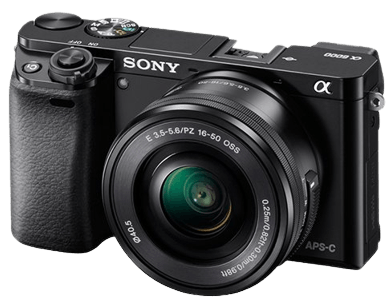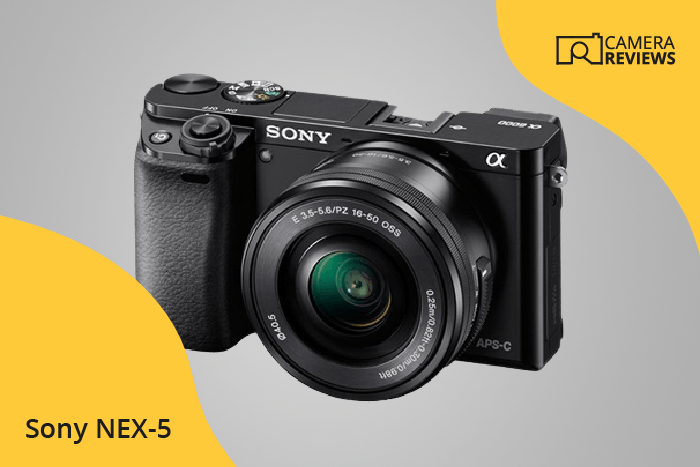Sony NEX-5 Specs and Scores

The Sony NEX-5 earns a score of 49/100 in our evaluation. This mirrorless camera, announced on May 1, 2010, and released the same year, entered the market with a launch price of $650. Measuring 111 x 59 x 38mm and weighing 287g (0.63lbs), the NEX-5 offers a compact and lightweight design. However, considering the advancements in camera technology since its release, the NEX-5’s specifications may not be as competitive in today’s market.
Sony NEX-5 Overview and Optics
The Sony NEX-5 receives a score of 55/100 for its optics. This camera has a 14.16-megapixel APS-C CMOS sensor and a Bionz processor, providing a DXOMARK sensor score of 69. Equipped with a Sony E lens mount and image stabilisation, it offers a shooting speed of 7 frames per second and a 3:2 aspect ratio.
Comparing these specifications to current market standards, the NEX-5’s 14.16-megapixel resolution is lower than many contemporary cameras. However, its APS-C sensor size remains popular and widely used. The camera’s shooting speed of 7 frames per second is adequate for casual photography but may be insufficient for capturing fast-paced action or sports.
The Sony NEX-5 may not be a leader in today’s market, but it still offers decent optics for casual photographers. Its image stabilisation and Sony E lens mount compatibility are valuable features. However, those seeking higher resolution and faster shooting speeds should consider alternative options.
Sony NEX-5 Video Performance
The Sony NEX-5 lacks video functionality. This camera does not record videos.
Sony NEX-5 Features and Benefits
The feature score for the Sony NEX-5 stands at 41 out of 100. Among its specifications, it boasts a 3-inch screen with a resolution of 920,000 dots. Although it lacks a touchscreen, it compensates with a flip screen that allows for versatile shooting angles. However, the camera does not include modern connectivity options such as GPS, WIFI, or Bluetooth.
In today’s market, the Sony NEX-5’s specifications may not be as competitive as newer models. The absence of wireless connectivity and GPS may limit its appeal to those who prioritize convenience and connectivity. The flip screen is a useful feature, but the lack of a touchscreen may not satisfy users accustomed to intuitive touch controls.
Despite its limitations, the Sony NEX-5 still offers a solid performance in its class. While it may not be the top choice for those seeking the latest features, it remains a reliable option for photographers who value simplicity and ease of use.
Sony NEX-5 Storage and Battery
The Sony NEX-5 receives a storage and battery score of 21/100. This camera has only one memory card slot and accepts SD, SDHC, SDXC, Memory Stick Pro Duo, and Pro-HG Duo cards. In today’s market, multiple memory card slots are preferred for more storage capacity and flexibility.
The battery life of the NEX-5 is 330 shots, which is lower than the average battery life of modern cameras. The camera uses an NP-FW50 battery type, which is common among Sony cameras. However, it lacks USB charging, a feature that is increasingly important for on-the-go photographers.
Taking these factors into account, the Sony NEX-5’s storage and battery capabilities fall short when compared to contemporary camera models.
Sony NEX-5 Alternatives
Do you want to know how the Sony NEX-5 compares to its competitors? Have a look at the most popular comparisons for this camera below:
- Sony a5100 vs NEX-5
- Canon EOS M3 vs Sony NEX-5
- Sony NEX-5 vs SLT Alpha 58
- Canon EOS 1Ds Mark III vs Sony NEX-5
- Sony a6000 vs NEX-5
- Sony a6400 vs NEX-5
Sony NEX-5 FAQ
Does the Sony NEX-5 Have Built-in Image Stabilization?
Yes, the Sony NEX-5 features built-in image stabilization, which helps reduce blur and improve image sharpness in handheld shooting situations.
Does the Sony NEX-5 Support 4K Video Recording?
No, the Sony NEX-5 does not support 4K video recording. It can, however, record videos in Full HD 1080p resolution.
What Size Sensor Does The Sony NEX-5 Have?
The Sony NEX-5 is equipped with an APS-C sized sensor, which is larger than most compact cameras and provides better image quality and low-light performance.
Does the Sony NEX-5 Have a Dual Memory Card Slot?
No, the Sony NEX-5 has a single memory card slot, which supports SD, SDHC, and SDXC cards for storage.
Does the Sony NEX-5 Have a Touch Screen?
No, the Sony NEX-5 does not feature a touch screen. It has a 3-inch tiltable LCD screen for composing shots and navigating menus.
Does the Sony NEX-5 Have Wi-Fi and Bluetooth?
The Sony NEX-5 does not have built-in Wi-Fi or Bluetooth connectivity for wireless sharing or remote control of the camera.
Does the Sony NEX-5 Have GPS?
No, the Sony NEX-5 does not have a built-in GPS feature for geotagging images.
Is the Sony NEX-5 Weather Sealed?
No, the Sony NEX-5 is not weather sealed, so it is not recommended for use in harsh weather conditions without proper protection.
Does the Sony NEX-5 Have a Built-in Flash?
No, the Sony NEX-5 does not have a built-in flash, but it comes with an external flash that can be attached to the camera’s accessory shoe.

